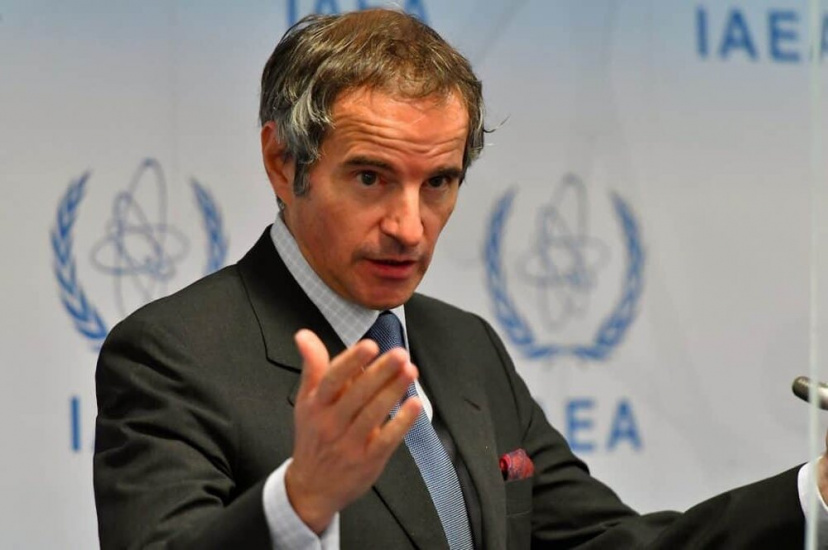IAEA’s Grossi says likes to work with new Iranian president

“I am open to working with the next president of Iran and to hear Iran’s views,” Grossi told PassBlue in an interview published on Sunday.
Raisi was elected Iran’s new president on June 18. His administration will start work in mid-August.
Grossi said, “I want to sit down with the new leadership and build trust and a relationship as soon as we can.”
Elsewhere in his remarks, the IAEA chief said, “Iran is a sovereign nation, but from my perspective I cannot see any advantage for them to sever ties with the IAEA or pursue a policy of confrontation with the IAEA.”
Iran has been limiting nuclear inspections by the IAEA in reaction to the abandonment of the 2015 nuclear deal by the U.S. according to which Tehran had agreed to put limits on its nuclear activities in exchange for termination of economic and financial sanctions.
Iran’s move to gradually remove ban on its nuclear program started in May 2019, one year after former U.S. President Donald Trump quit the nuclear deal – officially called the JCPOA – and returned the previous sanctions and introduced new ones under different labels.
Trump even introduced a total ban on Iran’s oil export, the country’s main source of income, under his “maximum pressure” campaign against the Islamic Republic.
The purpose behind Trump and his hawkish team was to strangulate the Iranian economy. The Trump administration introduced these crippling sanctions in violation of UN Security Council Resolution 2231 that has endorsed the JCPOA.
Late last year the Iranian parliament approved a legislation tasking the Atomic Energy Organization of Iran (AEOI) to accelerate nuclear activities, including increasing the purity of nuclear fuel, in response to the illegal sanctions against Iran. It has been stated in the legislation if the illegal sanctions against Iran are lifted in a verifiable way, Iran will reverse its decisions.
The new U.S. administration in the U.S. under the leadership of Joe Biden has expressed willingness to rejoin the multilateral nuclear pact. The remaining parties to the JCPOA – Iran, Russia, China, Germany, Britain, and France – with an indirect participation of the U.S. have started talks in Vienna since early April with the aim of reviving the JCPOA. All the parties have expressed optimism over the restoration of the agreement.
The sixth round of the nuclear deal talks in Vienna ended on Sunday. The negotiators are returning to the capitals for political decisions by senior officials.
Iran’s top nuclear negotiator Abbas Araqchi issued a statement on Sunday saying progress made in this round of negotiations, especially regarding the draft of negotiation texts. He said the remaining important issues require serious decisions in the capitals, especially in the negotiating countries. Araqchi, Iran’s deputy foreign minister for political affairs,urged the negotiating parties to make the necessary decisions with realism, seriousness and strong will to maintain and revive the JCPOA.
While stating that the sides are closer to an agreement than ever before, Araqchi expressed hope that an agreement could be reached in the next round of talks, although it could not be guaranteed.
On Monday, Iranian Foreign Ministry spokesman Saeed Khatibzadeh also looked optimistic about the next round of nuclear talks, saying it may be the last one.
“We have agreed on a clear text on all issues and what has remained entails ‘political decisions’ by all sides. If these political decisions are taken, one can be hopeful that we are in the last round of talks,” Khatibzadeh told a regular news briefing.
Iranian President Hassan Rouhani looks mor optimistic about the revitalization of the nuclear deal, claiming “I am sure” that the sanctions “will be lifted soon”.
Rouhani made the remarks while talking about the launch of free trade zones.
It is not yet clear when the next round of talks will begin.
Source: Tehran Times

